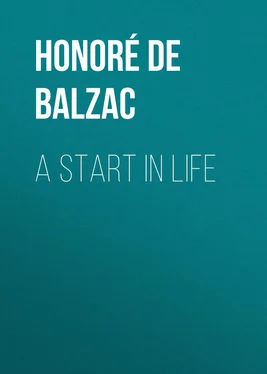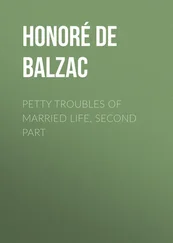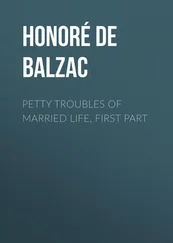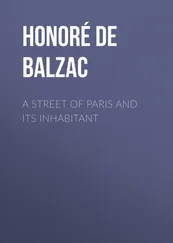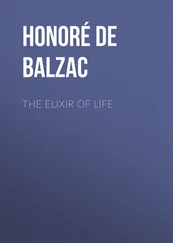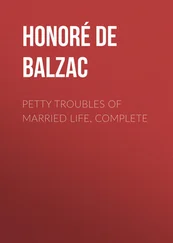Honoré Balzac - A Start in Life
Здесь есть возможность читать онлайн «Honoré Balzac - A Start in Life» — ознакомительный отрывок электронной книги совершенно бесплатно, а после прочтения отрывка купить полную версию. В некоторых случаях можно слушать аудио, скачать через торрент в формате fb2 и присутствует краткое содержание. Жанр: literature_19, foreign_antique, foreign_prose, на английском языке. Описание произведения, (предисловие) а так же отзывы посетителей доступны на портале библиотеки ЛибКат.
- Название:A Start in Life
- Автор:
- Жанр:
- Год:неизвестен
- ISBN:нет данных
- Рейтинг книги:4 / 5. Голосов: 1
-
Избранное:Добавить в избранное
- Отзывы:
-
Ваша оценка:
- 80
- 1
- 2
- 3
- 4
- 5
A Start in Life: краткое содержание, описание и аннотация
Предлагаем к чтению аннотацию, описание, краткое содержание или предисловие (зависит от того, что написал сам автор книги «A Start in Life»). Если вы не нашли необходимую информацию о книге — напишите в комментариях, мы постараемся отыскать её.
A Start in Life — читать онлайн ознакомительный отрывок
Ниже представлен текст книги, разбитый по страницам. Система сохранения места последней прочитанной страницы, позволяет с удобством читать онлайн бесплатно книгу «A Start in Life», без необходимости каждый раз заново искать на чём Вы остановились. Поставьте закладку, и сможете в любой момент перейти на страницу, на которой закончили чтение.
Интервал:
Закладка:
Ruined in 1815 by the fall of the Empire, the brilliant Aspasia of the Directory had no other resources than Clapart’s salary of twelve hundred francs from a clerkship obtained for him through the Comte de Serizy. Moreau, the only protector of a woman whom he had known in possession of millions, obtained a half-scholarship for her son, Oscar Husson, at the school of Henri IV.; and he sent her regularly, by Pierrotin, such supplies from the estate at Presles as he could decently offer to a household in distress.
Oscar was the whole life and all the future of his mother. The poor woman could now be reproached with no other fault than her exaggerated tenderness for her boy, – the bete-noire of his step-father. Oscar was, unfortunately, endowed by nature with a foolishness his mother did not perceive, in spite of the step-father’s sarcasms. This foolishness – or, to speak more specifically, this overweening conceit – so troubled Monsieur Moreau that he begged Madame Clapart to send the boy down to him for a month that he might study his character, and find out what career he was fit for. Moreau was really thinking of some day proposing Oscar to the count as his successor.
But to give to the devil and to God what respectively belongs to them, perhaps it would be well to show the causes of Oscar Husson’s silly self-conceit, premising that he was born in the household of Madame Mere. During his early childhood his eyes were dazzled by imperial splendors. His pliant imagination retained the impression of those gorgeous scenes, and nursed the images of a golden time of pleasure in hopes of recovering them. The natural boastfulness of school-boys (possessed of a desire to outshine their mates) resting on these memories of his childhood was developed in him beyond all measure. It may also have been that his mother at home dwelt too fondly on the days when she herself was a queen in Directorial Paris. At any rate, Oscar, who was now leaving school, had been made to bear many humiliations which the paying pupils put upon those who hold scholarships, unless the scholars are able to impose respect by superior physical ability.
This mixture of former splendor now departed, of beauty gone, of blind maternal love, of sufferings heroically borne, made the mother one of those pathetic figures which catch the eye of many an observer in Paris.
Incapable, naturally, of understanding the real attachment of Moreau to this woman, or that of the woman for the man she had saved in 1797, now her only friend, Pierrotin did not think it best to communicate the suspicion that had entered his head as to some danger which was threatening Moreau. The valet’s speech, “We have enough to do in this world to look after ourselves,” returned to his mind, and with it came that sentiment of obedience to what he called the “chefs de file,” – the front-rank men in war, and men of rank in peace. Besides, just now Pierrotin’s head was as full of his own stings as there are five-franc pieces in a thousand francs. So that the “Very good, madame,” “Certainly, madame,” with which he replied to the poor mother, to whom a trip of twenty miles appeared a journey, showed plainly that he desired to get away from her useless and prolix instructions.
“You will be sure to place the packages so that they cannot get wet if the weather should happen to change.”
“I’ve a hood,” replied Pierrotin. “Besides, see, madame, with what care they are being placed.”
“Oscar, don’t stay more than two weeks, no matter how much they may ask you,” continued Madame Clapart, returning to her son. “You can’t please Madame Moreau, whatever you do; besides, you must be home by the end of September. We are to go to Belleville, you know, to your uncle Cardot.”
“Yes, mamma.”
“Above all,” she said, in a low voice, “be sure never to speak about servants; keep thinking all the time that Madame Moreau was once a waiting-maid.”
“Yes, mamma.”
Oscar, like all youths whose vanity is excessively ticklish, seemed annoyed at being lectured on the threshold of the Lion d’Argent.
“Well, now good-bye, mamma. We shall start soon; there’s the horse all harnessed.”
The mother, forgetting that she was in the open street, embraced her Oscar, and said, smiling, as she took a little roll from her basket: —
“Tiens! you were forgetting your roll and the chocolate! My child, once more, I repeat, don’t take anything at the inns; they’d make you pay for the slightest thing ten times what it is worth.”
Oscar would fain have seen his mother farther off as she stuffed the bread and chocolate into his pocket. The scene had two witnesses, – two young men a few years older than Oscar, better dressed than he, without a mother hanging on to them, whose actions, dress, and ways all betokened that complete independence which is the one desire of a lad still tied to his mother’s apron-strings.
“He said mamma !” cried one of the new-comers, laughing.
The words reached Oscar’s ears and drove him to say, “Good-bye, mother!” in a tone of terrible impatience.
Let us admit that Madame Clapart spoke too loudly, and seemed to wish to show to those around them her tenderness for the boy.
“What is the matter with you, Oscar?” asked the poor hurt woman. “I don’t know what to make of you,” she added in a severe tone, fancying herself able to inspire him with respect, – a great mistake made by those who spoil their children. “Listen, my Oscar,” she said, resuming at once her tender voice, “you have a propensity to talk, and to tell all you know, and all that you don’t know; and you do it to show off, with the foolish vanity of a mere lad. Now, I repeat, endeavor to keep your tongue in check. You are not sufficiently advanced in life, my treasure, to be able to judge of the persons with whom you may be thrown; and there is nothing more dangerous than to talk in public conveyances. Besides, in a diligence well-bred persons always keep silence.”
The two young men, who seemed to have walked to the farther end of the establishment, here returned, making their boot-heels tap upon the paved passage of the porte-cochere. They might have heard the whole of this maternal homily. So, in order to rid himself of his mother, Oscar had recourse to an heroic measure, which proved how vanity stimulates the intellect.
“Mamma,” he said, “you are standing in a draught, and you may take cold. Besides, I am going to get into the coach.”
The lad must have touched some tender spot, for his mother caught him to her bosom, kissed him as if he were starting upon a long journey, and went with him to the vehicle with tears in her eyes.
“Don’t forget to give five francs to the servants when you come away,” she said; “write me three times at least during the fifteen days; behave properly, and remember all that I have told you. You have linen enough; don’t send any to the wash. And above all, remember Monsieur Moreau’s kindness; mind him as you would a father, and follow his advice.”
As he got into the coach, Oscar’s blue woollen stockings became visible, through the action of his trousers which drew up suddenly, also the new patch in the said trousers was seen, through the parting of his coat-tails. The smiles of the two young men, on whom these signs of an honorable indigence were not lost, were so many fresh wounds to the lad’s vanity.
“The first place was engaged for Oscar,” said the mother to Pierrotin. “Take the back seat,” she said to the boy, looking fondly at him with a loving smile.
Oh! how Oscar regretted that trouble and sorrow had destroyed his mother’s beauty, and that poverty and self-sacrifice prevented her from being better dressed! One of the young men, the one who wore top-boots and spurs, nudged the other to make him take notice of Oscar’s mother, and the other twirled his moustache with a gesture which signified, —
Читать дальшеИнтервал:
Закладка:
Похожие книги на «A Start in Life»
Представляем Вашему вниманию похожие книги на «A Start in Life» списком для выбора. Мы отобрали схожую по названию и смыслу литературу в надежде предоставить читателям больше вариантов отыскать новые, интересные, ещё непрочитанные произведения.
Обсуждение, отзывы о книге «A Start in Life» и просто собственные мнения читателей. Оставьте ваши комментарии, напишите, что Вы думаете о произведении, его смысле или главных героях. Укажите что конкретно понравилось, а что нет, и почему Вы так считаете.
